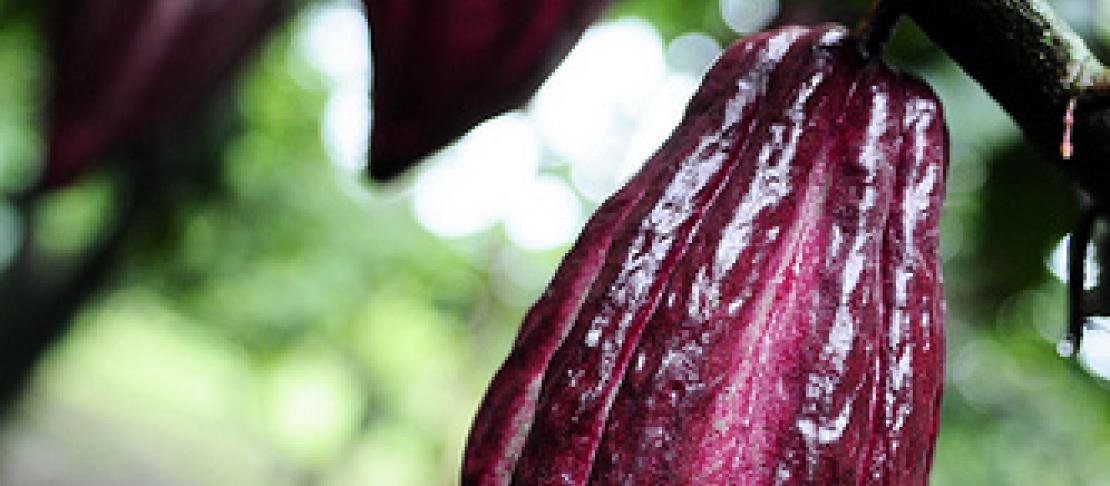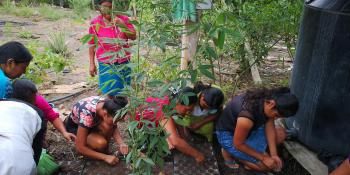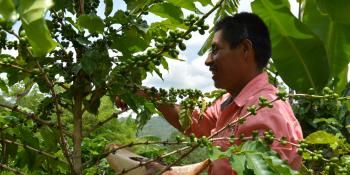Chocolate production melting away with climate change

A recently released report (PDF) by the International Center for Tropical Agriculture (CIAT) finds that Ghana and Cote d’Ivoire might become too hot for the cocoa plant by as early as 2030, based on a projected one-degree Celsius increase. Smallholder farmers in the two countries supply over half of the world’s cocoa which means a risk of increasing global market prices and a negative effect on the cocoa producers livelihoods.
Warmer conditions mean that the heat sensitive cocoa tree will struggle to get enough water during the growing season, curtailing the development of cocoa pods, containing the cocoa bean - the key ingredient in chocolate production. The trees are also expected to struggle as the region’s dry season becomes increasingly intense.
Risk for forests and protected areas being cleared
One way to compensate for the increased heat is to move the plantations to higher altitudes. However, in the fairly low-altitude cocoa-growing regions, cocoa suitability may face a drastic decrease. Where land is available on higher ground, the search for new areas for cocoa plantations may encroach upon protected areas, triggering the clearing of forests and affecting flora and fauna in general. This could have a negative effect on the countries climate change adaptation and mitigation processes.
Possible solutions for the cocoa producers
A way forward is thus to help producers to diversify their food and cash crops to help spread out their risks in case one of their products fail. Other solutions include increased research and development of new, hardier cocoa crops capable of tolerating warmer, drier conditions, research on suitable irrigation systems, and better government-level policies that help cocoa farmers and the industry as a whole prepare and adapt.
The research used the combined results of 19 climate models to assess the impact on climate change on cocoa production. The report was commissioned by the Bill and Melinda Gates foundation and it is the first one out in a series of climate reports on key cash crops in West Africa. Reports on climate change impact on cotton and cashew is to be expected in the upcoming months. These reports follow the same studies of fair-trade tea production in Kenya and Uganda that came out earlier this year. For more information on this study read CCAFS blog post 'Ugandan tea production under pressure'.
CIAT scientists were also behind the recently released studies on adapting key crops such as banana, bean, potato and cassava to climate change.
CIAT Press release: Africa's Chocolate Meltdown: climate change could threaten cocoa farmers


